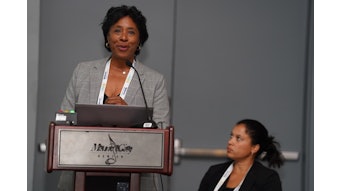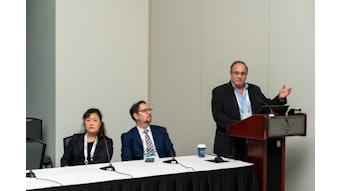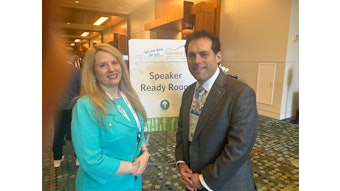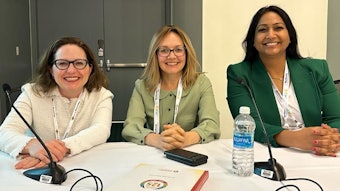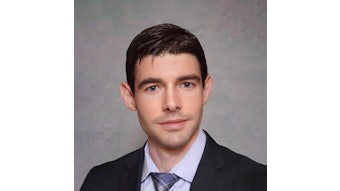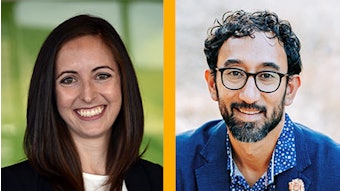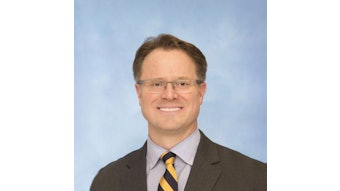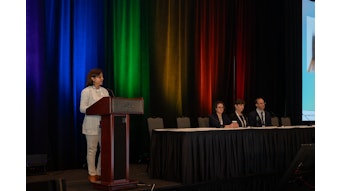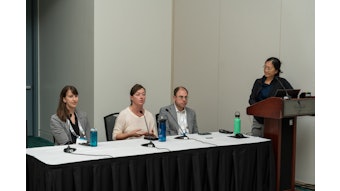Removing Obstacles to Gender Bias in Otolaryngology
Following the lead of others paving the way.

Moving women to the forefront of leadership in otolaryngology is a never-ending climb. Despite small steps in medicine, women are still underrepresented, according to Dana L. Crosby, MD, MPH, Chair of the Department of Otolaryngology – Head and Neck Surgery at Southern Illinois University in Springfield.
Dr. Crosby is among the speakers at Wednesday’s session, “Empowered Women Empower Women: Supporting Females in the Male-Dominated Field of Otolaryngology,” which features a panel of women in the field who have succeeded in navigating some of the hurdles. They will discuss the importance of mentor relationships, strategies, and anecdotes that were integral to their success.
“Although we are an overall minority, there is a disproportionate ratio of men to women in leadership positions,” Dr. Crosby said. “While we have gained some ground, much work is needed to reach a point of equity.”
Closing the gender gap in a number of areas is a shared initiative, according to Tiffany A. Glazer, MD, Residency Program Director at the University of Wisconsin in Madison, Wisconsin. Dr. Glazer leads the panel of four female, fellowship-trained, academic otolaryngologists with leadership positions in their respective departments. Leveraging those roles, Dr. Glazer said the panel would like to bring awareness to important gender biases and discuss ways both men and women can implement change for future growth in their field.
In particular, the panel will highlight the most recent data and trends regarding the number of female otolaryngologists applying to the specialty, currently practicing, practicing in academics, and holding leadership positions within their academic department. The session also will discuss data on gender bias, harassment, discrimination, obstetrical complications, salary discrepancy, and burnout amongst female otolaryngologists.
“No one is completely exempt from the influence of gender bias,” Dr. Glazer said. “Having awareness and actively taking a stand against all forms of harassment, inequity, and unacceptable behavior among leadership, faculty, trainees, staff, and even patients and families will make the field of otolaryngology better for everyone.”
Fellow panelist Brittny N. Tillman, MD, Associate Head and Neck Fellowship Director and DEI Director for Otolaryngology – Head and Neck Surgery at UT Southwestern Medical Center in Dallas, Texas, said she hopes the session will bring to light the current barriers women face, how to empower female trainees, and how to work toward an equitable practice environment.
“Both men and women can close the gender gap in otolaryngology. The concepts we will discuss on our panel have intersectionality with other underrepresented populations in our field and can be extrapolated to improve the practice environment for those groups as well,” Dr. Tillman said.
Robbi A. Kupfer, MD, Residency Program Director and DEI Director for Otolaryngology – Head and Neck Surgery at the University of Michigan in Ann Arbor, is among the session’s panelists. She said the statistics speak for themselves. Based on a 2018 AAO-HNS survey sent to female otolaryngologists, Dr. Kupfer said, the majority reported experiencing harassment during residency training, and a staggering 83% felt it is “somewhat to very difficult” to manage work-life balance.
“As women leaders in academic otolaryngology, we feel it is essential that everyone in our field understand the barriers that exist for women otolaryngologists so that we can work together to make the changes that will allow our field to achieve its full potential,” Dr. Kupfer said.
Ultimately, while there is more work to accomplish, Dr. Crosby hopes the session will serve as inspiration to continue the effort.
“I hope that women are inspired to identify strategies for advancement in the successful career of their choosing,” Dr. Crosby said. “Success can look like many different things. It can range from being a chair or a dean to working toward increased referrals and anything in between. Success in a career is determining what is important and putting it into action. There is no one pathway or defining achievement that can be equated to success.”
